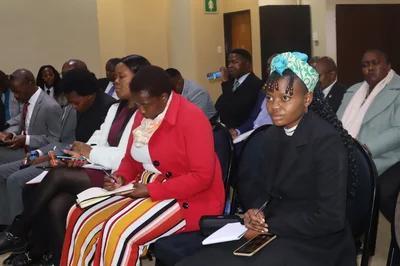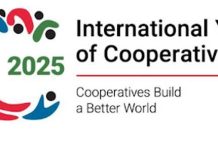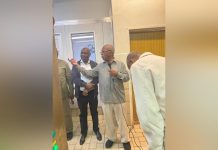Africa-Press – Lesotho. The Central Bank of Lesotho (CBL) has cut its key interest rate by 25 basis points to 6.75% per annum to support growth and maintain inflation stability, this was announced during the 114th Monetary Policy Committee (MPC) meeting.
This move comes as inflation remains contained and the global economic environment shows signs of a slow but uneven recovery.
According to the statement presented by the CBL Governor, Dr. Maluke Letete, the decision reflects a cautious optimism about Lesotho’s economic performance, while also acknowledging the ongoing risks facing both the domestic and global economy.
Globally, the economy is still navigating uncertainty caused by trade disruptions and geopolitical tensions.
However, Dr. Letete said that there are signs of improvement. The International Monetary Fund (IMF) has revised its global growth forecast for 2025 upward to 3.0%, citing stronger trade performance and continued fiscal support in some regions.
Lesotho’s economy showed signs of modest recovery in May 2025, mainly supported by stronger private consumption and resilience in the manufacturing sector, particularly textile exports to South Africa.
The country also saw inflation ease to 4.3% in June, driven by falling global oil prices and a stronger Loti against the US Dollar.
Despite these positive developments, Dr. Letete emphasised that the recovery remains fragile. Risks include weakening demand from international markets, higher trade costs, challenges in the mining industry, and the potential impact of the withdrawal of donor-funded programmes like Compact II.
On the fiscal side, the government recorded a budget deficit of 4.4% of GDP in May 2025. While revenue remained stable (excluding receipts from the Southern African Customs Union – SACU), government spending declined, largely due to lower grants to off-budget entities and reduced capital investments.
Public debt saw a slight drop to 54.8% of GDP, which offers a small cushion, but still highlights the need for careful fiscal management.
Encouragingly, the external sector saw improvement. A rise in textile exports and higher SACU receipts helped strengthen Lesotho’s Net International Reserves (NIR), which increased by US$50.95 million, reaching US$1,120.16 million as of 22 July 2025. This boost in reserves is a positive sign for the country’s ability to maintain its fixed exchange rate system.
To further support the exchange rate peg, the MPC has raised the NIR target floor from US$830 million to US$840 million. Maintaining strong reserves is essential to keep the Loti–Rand parity, a cornerstone of Lesotho’s monetary and price stability strategy.
The Committee agreed that the current environment marked by stable inflation and a more relaxed policy stance in South Africa offers an opportunity to lower the policy rate without threatening external stability.
“Lowering the rate is meant to support domestic economic activity, while maintaining the credibility of our fixed exchange rate system,” said Dr. Letete.
On that note, Dr Letete said that the MPC reaffirmed its commitment to the fixed exchange rate regime, which remains a key anchor for the country’s monetary policy. Since Lesotho does not have its own independent currency policy, it relies on prudent management of reserves and alignment with regional policies, especially those of South Africa.
He also assured the public that the CBL will continue to it will to monitor both domestic and international developments, including inflation trends, SACU revenues, fiscal performance and regional policy shifts
Dr Letete said that the Committee has emphasised its readiness to adjust the policy stance if necessary, particularly if there are signs that the loti-rand peg or price stability are under threat.
For ordinary Basotho, the policy rate cut could translate into slightly lower borrowing costs, which may provide some relief to businesses and households. However, the real impact will depend on how commercial banks adjust their own lending rates.
The lower interest rate is also expected to encourage investment and spending, which may support job creation in sectors like manufacturing and small business.
At the same time, Dr. Letete warned that the economy remains vulnerable. “This is not the time for complacency. We must continue to build buffers and pursue policies that promote inclusive growth.”
For More News And Analysis About Lesotho Follow Africa-Press






